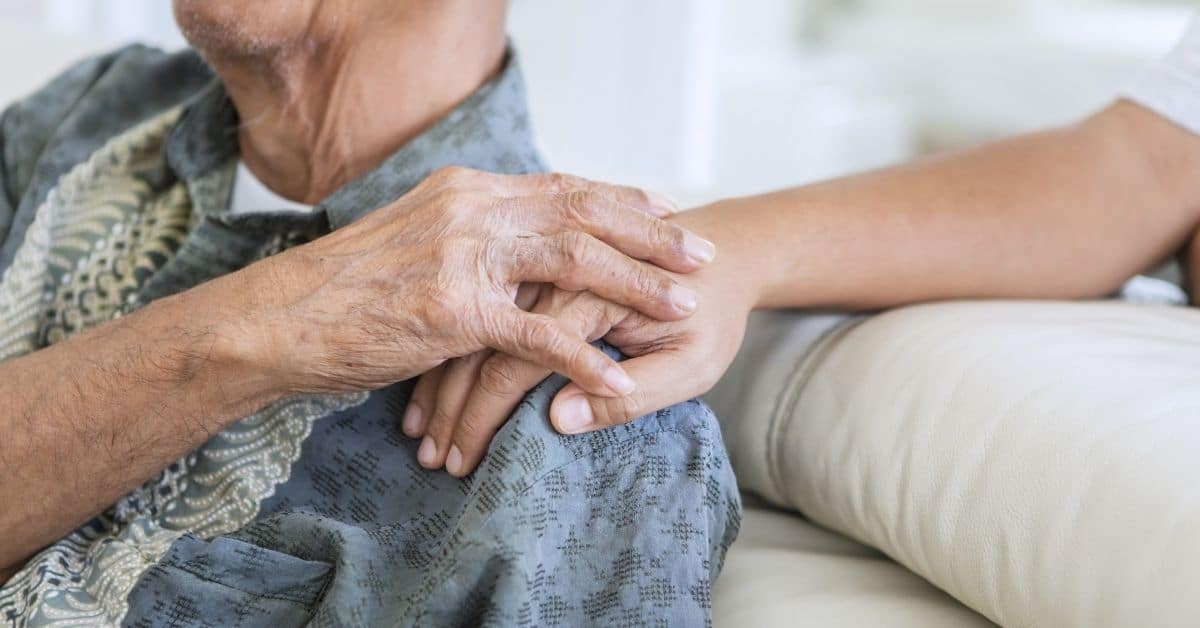It’s hard to watch a parent’s health decline, and while there’s no way to know when exactly the signs will start to emerge, it’s important to recognize the signs your aging parent needs help.
There are natural signs of aging that start taking place after retirement. For example, you might notice that your parent’s eyes have become more sensitive to light, or that they’re moving slower around the house, or they are experiencing more joint paint than they used to.
But as these issues worsen over time, there comes a point when it’s no longer safe for your parent to live at home alone. More often than not, though, your mom or dad isn’t going to come to you asking for help. Most seniors are understandably afraid of losing their independence, being treated like a child, or losing control of their life. How you handle it can make all the difference.
Trust Your Instinct When Looking for Signs Your Aging Parent Needs Help
You know your parents and their behaviors better than any doctor or caretaker. If you notice or feel that something isn’t quite right and think your mom or dad may need some additional support, the answer is that they probably do.
If your instincts tell you it’s time to get involved, start by looking for these seven common signs your aging parent needs help living at home.
- They’ve Lost Weight
This is one of the most visible signs that your parent isn’t able to take care of themselves like they used to. If an older adult loses a lot of weight in a short amount of time, it could mean that cooking has become a challenging task.
- Their Fridge is Empty or Filled with Old Food
Take a peek inside the refrigerator the next time you visit your mom or dad. Does the food look fresh? If the fridge is either empty or full of expired food, they may be eating spoiled food or not eating at all.
This could also mean that grocery shopping has become too difficult or they can no longer tell the difference between fresh and spoiled food. Whatever the reason, if nutrition becomes an issue, it’s time to step in.
- Poor Hygiene
Poor hygiene and an overall decline in physical appearance is another sign. If you continuously see your mom or dad wearing the same clothes whenever you visit, if they’re not showering, or if there’s an odor to them or their clothing, they may need help bathing or doing laundry.
If your parent’s bathroom shower requires them to step in and out of the tub, they may be afraid to use the shower but are just too proud or humble to admit it. Or if their legs and joints are stiff, it may be too hard to step over the tub wall.
- A Messy House
You probably don’t think twice about sweeping your floor or doing the dishes – these are just chores that need to get done. But, if your parent develops sore hands or joints, holding the broom or handling wet dishes in the sink becomes much more difficult. If each time you visit your parents’ home, you walk into a messy house – and it never seems to improve – chances are housework has become too difficult or painful.
- Forgetfulness or Confusion
We all forget where we left the keys from time to time. But, if your parent seems more forgetful or confused than normal, they could be suffering from a more serious cognitive issue. Difficulty remembering to take medication or trouble remembering the date and time they planned to meet you for lunch are both signs your aging parent needs help.
- Missing Doctor’s Appointments
One big indicator of confusion in the elderly is missed doctor’s appointments. This is especially true if they go on the wrong day or at the wrong time. Alternatively, they may miss their doctor’s appointments on purpose because they are worried about what the doctor might tell them.
Whether it’s due to confusion or avoidance, knowing your mom or dad’s appointment schedule can help you recognize when doctor visits are missed and allow you the opportunity to follow-up with your parent afterward.
- A Lack of Interest in their Favorite Activities
While many of the signs your aging parent needs help are physical, there are just as many mental and emotional changes to watch for as well. One of the most apparent signs is a loss of interest in the activities they used to enjoy. If your mom or dad stay home more often and skip get-togethers with friends or family, or if they stop attending community events they once looked forward to, these are further signs they might need your support.
Visit Your Mom and Dad’s House and Look for Any Signs for Concern
If your parents do need help, they’re probably pretty good at disguising it during a 20-minute phone call. It’ll be much harder for them to hide the challenges they’re facing, though, if you stop by for a visit.
Spend some time with them in their environment. While you’re there, look for evidence of these seven signs and start to piece together which issues (if any) need to be addressed.
What Can You Do When Social Distancing Gets in the Way of Caretaking?
The best way to see if your parent needs help is to spend some time with them in their home. Of course, this can be difficult to do with a global pandemic and a virus that’s particularly dangerous for older adults.
If spending time with your mom or dad at home isn’t an option right now, getting virtual visibility into their home is the next best thing. Schedule regular Zoom or FaceTime calls not only to say hi but to see how your parent is living. Take notice of their clothes, cleanliness, and how their house looks in the background. If they’re wearing the same clothes that they were during your last call or if the house looks unkempt, it’s probably time to step in with more support.
If Your Parent Does Need Some Help, What’s the Best Way to Start?
Life is busy and in the blink of an eye, weeks and months fly by. But, spending more time with your mom or dad – whether in person or virtually – has to happen if you’re going to convince them to let you help.
Schedule a weekly Zoom call and a regular lunch date once every couple of weeks. When you’re having concerns, the more often you can see how they’re living and take notice of their mood, the better.
We all need help as we age – it’s no reason to feel ashamed. And yet, a good number of adults have a hard time letting go of their independence as they age. Don’t expect them to be receptive to your help right away. The key is to listen, ask them what they want, and do what you can to help without taking away their control.
There are a few ways to help that will actually allow your parent to remain independent longer:
- Help them make small renovations at home that make getting around easier.
- Hire a grocery delivery service to bring food each week.
- Suggest a housekeeper take over the cleaning so they can spend time on more enjoyable tasks.
- Start a discussion now about eventually moving to a community with other active seniors; a community where home maintenance is taken care of and nursing care is around the corner so they can live worry-free. If you need help starting that conversation, check out our article on how to do it the right way.
Finally, emphasize to your parent how each of these steps, when the time is right, will help them maintain their independence longer so they can better enjoy their golden years.
We welcome you and your loved ones to visit Pleasant View Communities and discover everything that our vibrant, active community has to offer. We’ll take you on a tour and show you the beauty and joy of carefree living. Contact us to learn more and schedule a tour.


